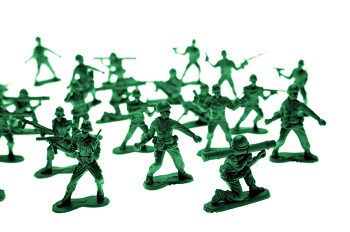When I first heard of Robin Williams’s death, I felt natural shock and grief. My first thought was, “Oh, no! Co-occurring got him!”
I debate how to write my recovery story. Do I write from within about what it’s like to be me, do I write from without and observe myself being me and comment as a mental health and addictions counselor, or do I write editorially about the insanity of the lack of consensus about addictions treatment and the lack of addictions treatment in rural areas?!
 I don’t know. This one’s a mix of the first two. Here goes.
I don’t know. This one’s a mix of the first two. Here goes.
If I understand correctly from news sources, Robin Williams struggled with depression and addiction. In clinical circles, he would be considered to have co-occurring disorders, i.e. substance use disorders (in his case, cocaine and alcohol) and mental disorders (depression) at the same time. (This poignant piece from The Washington Times adds physical illness to the burdens Williams carried.)
Combinations of co-occurring disorders I have seen often are substance use disorder with meth and marijuana paired with bipolar disorder and PTSD; prescription drugs paired with depression; alcohol paired with anxiety and trauma. SAMHSA (Substance Abuse and Mental Health Services Administration) has a mix and match list here.
Williams reported times in rehab and periods of abstention from alcohol and cocaine. In July of this year, he reportedly checked himself into a “renewal center.” CBS speculates about what that might have meant.
This is the statistic I seek. I and others have found numbers like these, but not this one:
____ % of those in the U.S. with substance use disorders have co-occurring disorders, i.e. substance use disorder(s) + mental disorder(s)
My personal statistic is 100%. Those I have worked with who have one or more substance use disorders have mental health challenges. Many of them find relief from the mental health challenge from using substances – to which they eventually become addicted.
I know I did.
I shared in personal terms what went down for me in 2007. And I shared the development of my increased use of alcohol here.
It doesn’t take a Hazelden Drug Czar to diagnose me with trauma-induced alcoholism.
So I’m in recovery from alcoholism and from trauma. From co-occurring disorders.
I wrote a post early Tuesday morning on what it’s like to have my inner life. I had not yet heard of Robin Williams’s death.
The absolutely most excruciatingly difficult part of recovering from addiction is handling the feelings and thoughts that line up like soldiers during abstinence. Craving? Ha, that’s only the skinny drummer boy in my list of challengers.
When I was drinking wine, what bothers me was in a state of détente. Wine commanded a cease-fire. No wine? There’s war. And most of the 24 hours a day of each day that I am attempting to recover from addiction, I am alone. I’m trying everything I can – whispering in the soldiers’ ears, shouting at them, waving a sword, trying every weapon the T2 used. What will make them stop and talk?!
I cannot know what state of use or abstention Robin Williams was in, or what he was feeling and thinking when he killed himself. I do know what happens to my feelings and thoughts when I abstain. So far, I’ve been able to bear the inner war, as have the people I work with every day.
My work in the addictions field is young. I have yet to know someone personally with an addiction who has committed suicide. But I will. The war can turn to apocalypse.

